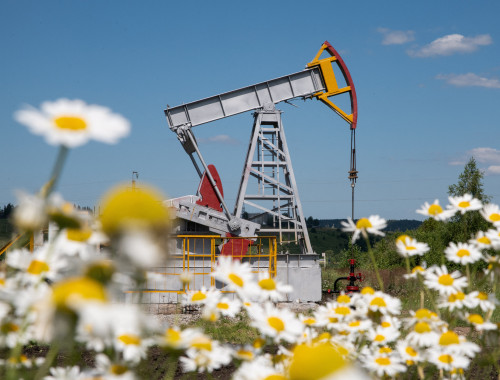By Nicole Jao
NEW YORK (Reuters) -Oil prices edged up on Monday as investors awaited talks between U.S. President Donald Trump and his Ukrainian counterpart after an inconclusive U.S.-Russia summit in Alaska on Friday
Brent crude futures rose 34 cents, or 0.52%, to $66.19 a barrel by 12:00 p.m. EDT (1600 GMT). U.S. West Texas Intermediate crude was up 38 cents, or 0.61%, at $63.18.
Last week Brent eased by 1.1% while WTI dropped 1.7%.
Ukrainian President Volodymyr Zelenskiy said on Monday he was ready to work to end the war with Russia ahead of a meeting with Trump where he could face pressure to accept terms favourable to Moscow.
Investors are watching for clues on potential ramifications for global oil supply, with potential for either a tightening of sanctions or steps toward reconciliation.
“The market is still locked in a speculative fervour right now,” said Phil Flynn, a senior analyst with Price Futures Group. “Traders seem to be very pessimistic on prices, which either meant they were expecting a cease fire deal or they think President Trump won’t follow though with the tough sanctions.”
Trump told Ukraine on Monday to give up hopes of getting back annexed Crimea or joining NATO, emerging more aligned with Moscow on seeking a peace deal instead of a ceasefire first after his meeting with Russian President Vladimir Putin in Alaska on Friday.
The Alaska summit ended with no agreement to resolve or pause the war, though Trump emerged from talks more aligned with Moscow on seeking a peace deal rather than a ceasefire first.
Meanwhile, White House trade adviser Peter Navarro said India’s purchases of Russian crude were funding Moscow’s war in Ukraine and had to stop, reviving concerns about supply flows.
“India acts as a global clearing house for Russian oil, converting embargoed crude into high-value exports while giving Moscow the dollars it needs,” Navarro said.
Priyanka Sachdeva, senior market analyst at brokerage Phillip Nova, said: “The U.S. adviser’s sharp words on India’s Russian crude imports, paired with postponed trade talks, revive concerns that energy flows remain hostage to trade and diplomatic frictions, even as peace prospects in Ukraine brighten.”
Investors are also watching for clues on U.S. interest rates from Federal Reserve Chairman Jerome Powell’s comments at this week’s Jackson Hole meeting.
(Reporting by Nicole Jao in New York, Seher Dareen and Robert Harvey in London, Florence Tan in Singapore and Sam Li in Beijing; Editing by Emelia Sithole-Matarise, Mark Potter, David Goodman and Christina Fincher)


